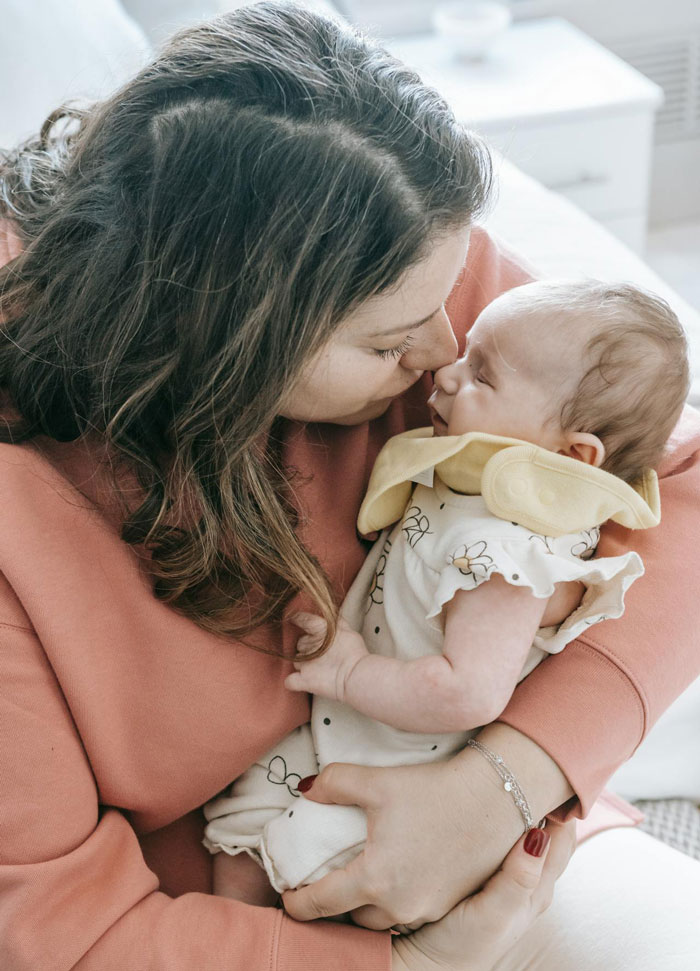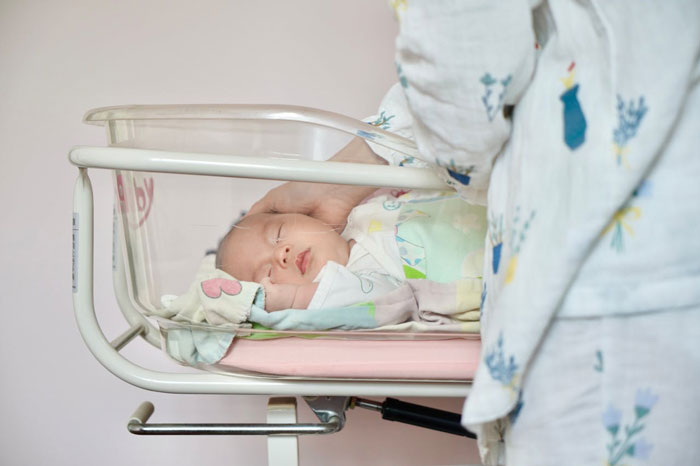Dad Returns to Work as Newborn Fights Pneumonia, Blames Fiancée for Baby’s Illness
In a moment that should have brought a couple closer, a young mother finds herself contemplating the future of her relationship. After their three-month-old son was hospitalized with pneumonia—contracted during a visit to her supportive yet flu-stricken family—the mother reached a breaking point. Exhausted from exclusive breastfeeding, sleepless nights, and postpartum recovery, she had hoped her fiancé would stand by her side. Instead, he blamed her for their baby’s condition and refused to support them during the hospital stay.
What was supposed to be a unified front against a child’s illness turned into a one-sided battle. Her fiancé, despite having ample paid leave, chose work over their sick child, insisting the mother rely on her family since “it’s their fault” the baby fell ill. Feeling abandoned and heartbroken, she’s now questioning the very foundation of their relationship. As the emotional weight of postpartum exhaustion, emergency medical care, and relationship red flags collide, she seeks advice: Would she be wrong to break off the engagement and move out for the sake of her child and mental health?
Many new moms try to do the best they can with what they have and what they know

But one woman’s best intentions backfired when her infant got extremely sick and her fiance blamed her

























The situation this mother faces is more common than many realize and raises serious concerns about parental responsibility, relationship compatibility, and legal obligations in co-parenting. When a partner refuses to offer support during a child’s medical emergency, it becomes a potential indicator of emotional neglect, which can have long-term consequences on both the child and the primary caregiver’s well-being.
According to Healthline, emotional neglect in relationships can manifest as dismissiveness during times of need, failure to provide care, or even blaming the partner for unavoidable situations—all behaviors present in this story. If left unchecked, such patterns can erode trust and breed resentment, often leading to toxic relationships and mental health issues like anxiety and depression.
Legally, while the couple is not yet married, a biological father still holds parental rights and responsibilities toward the child. Under family law, once paternity is established, both parents are expected to contribute to the child’s welfare—including during medical emergencies (Nolo). His refusal to assist during a hospitalization may not be illegal but could be considered in custody evaluations if the relationship dissolves. Courts often weigh parental involvement heavily when determining primary custody, especially in cases involving medical neglect or abandonment (FindLaw).
From a financial perspective, unpaid maternity leave and the rising costs of hospital stays can strain even the most stable relationships. The average cost of a hospital stay for pediatric pneumonia in the U.S. can exceed $9,000, not accounting for post-discharge care. The fiancé’s decision to prioritize work over family support could also be rooted in financial stress, but experts argue that financial planning for new parents must balance work obligations with the emotional and physical needs of both child and partner (Investopedia).
Additionally, postpartum recovery is often overlooked by partners. The mother’s extreme fatigue from exclusive breastfeeding every two hours is medically significant. Studies from La Leche League International highlight that newborns commonly feed this often, making support for breastfeeding mothers critical. Sleep deprivation can lead to postpartum depression, exacerbated by the lack of partner support (CDC).
Finally, it is worth noting that premarital counseling and clear communication about roles, expectations, and reactions during crises can prevent such emotionally charged situations. Couples facing significant challenges like child hospitalization should seek relationship therapy to navigate the strain and avoid long-term resentment (Psychology Today).
Many people came to the comments to urge the new mom to move out











